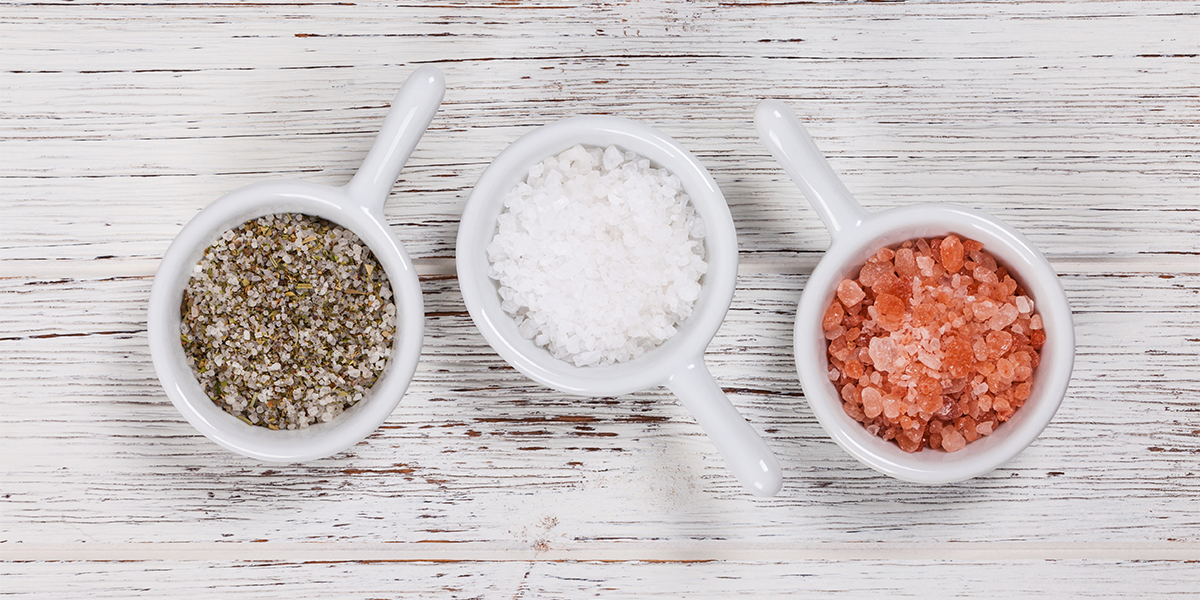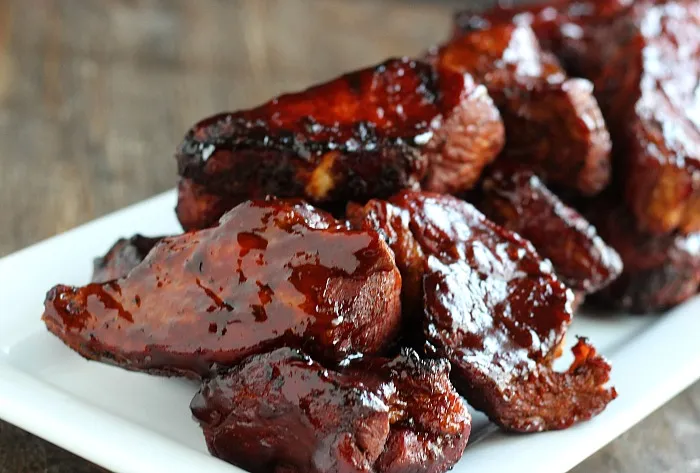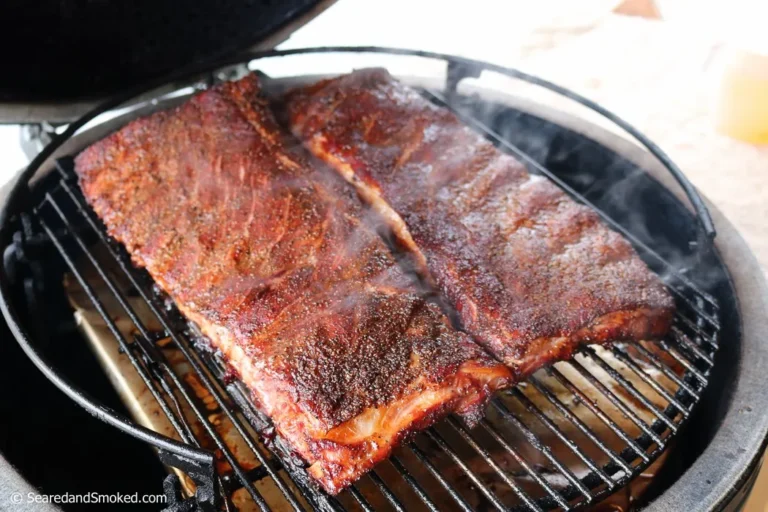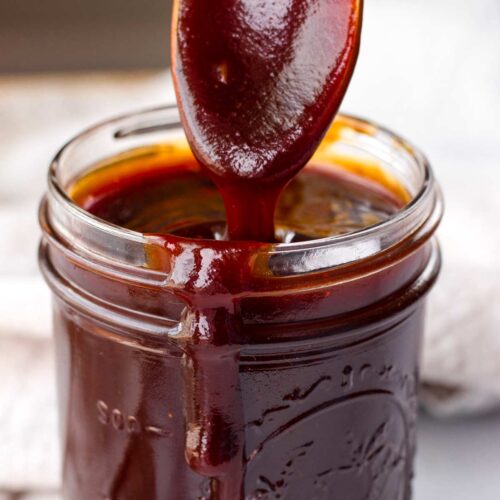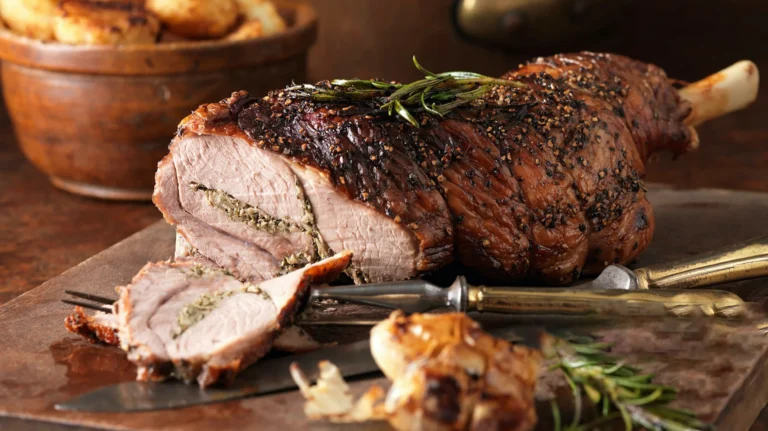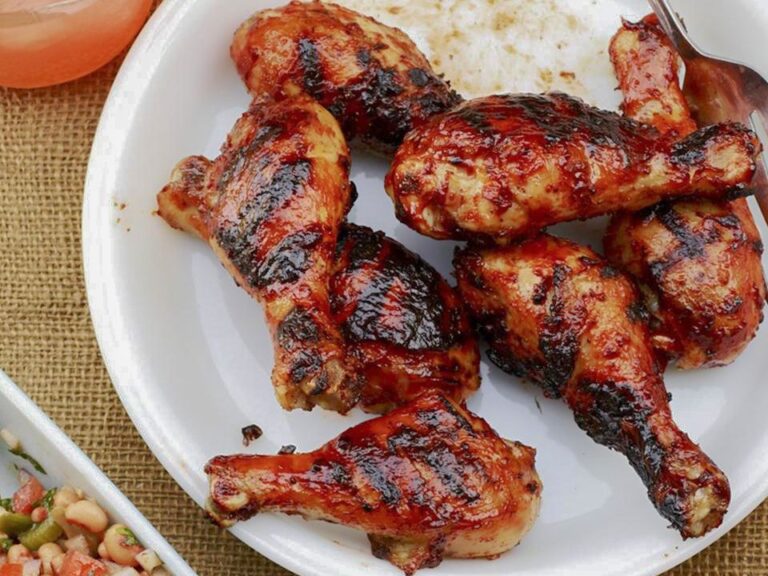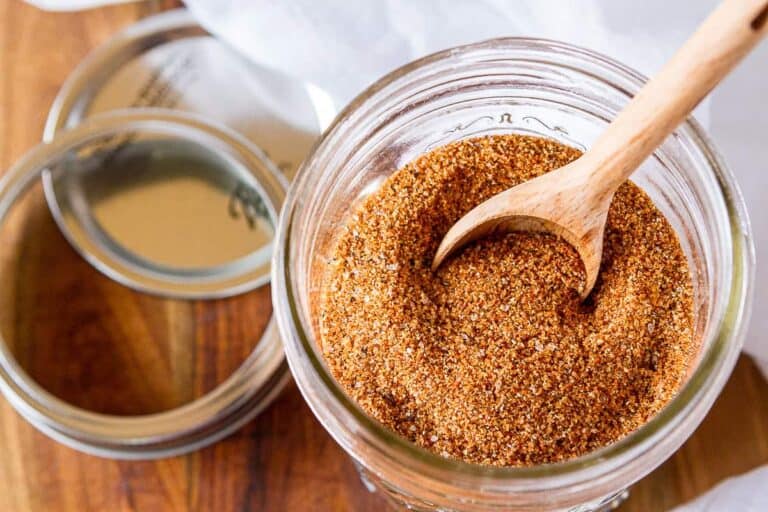The Science of BBQ Salt
Hey there, flavor adventurers! Ever wondered what makes BBQ salt the secret weapon of grill masters? It’s not just about adding taste; it’s an art, a science, and a little bit of magic. This isn’t your average salt. Infused with smoky spices, it transforms ordinary meat into a mouth-watering feast. Picture your next barbecue turning heads, with the aroma of perfectly seasoned steaks sizzling on the grill.
Now, that’s a scene! But wait, there’s more to it than just tantalizing your taste buds. Get ready to dive into the science behind BBQ salt and discover how it elevates your grilling game. So, grab your apron, and let’s sprinkle some excitement onto your culinary skills. Ready to become a BBQ legend? Keep reading and let the savory journey begin!
What is BBQ Salt?
BBQ salt is this awesome culinary wizard in the world of grilling and barbecuing. It’s not just your regular table salt; it’s like table salt went on a summer adventure and came back with a bunch of epic stories and flavors. This special salt is usually a mix of coarse salt and various spices like smoked paprika, garlic powder, onion powder, and sometimes a hint of sugar for a bit of sweetness.
What makes BBQ salt so cool is its ability to infuse meats and veggies with a smoky, savory flavor that screams “backyard BBQ” louder than a lawnmower on a Sunday morning. It’s like a shortcut to that classic barbecue taste, even if you’re just cooking on a regular kitchen stove.
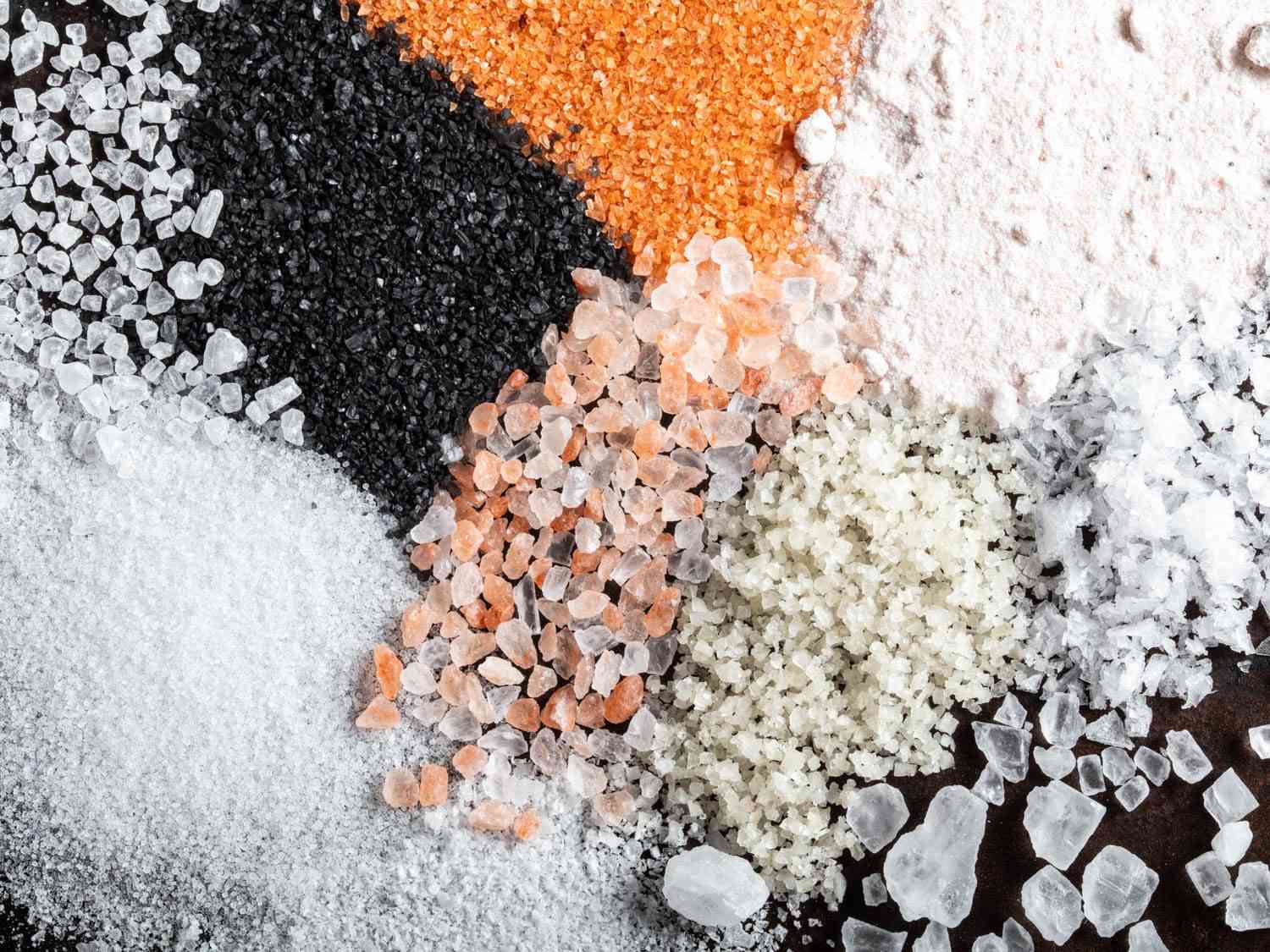
Which Salt to Use for Meat?
Choosing the right salt for your meat is like picking the perfect coffee bean for your morning brew – it can make all the difference! Here’s the lowdown on the salt scene for meats:
- Kosher Salt: This is like the all-rounder in your coffee arsenal, like a trusty medium roast. It’s got a good grain size that makes it easy to control when seasoning. It dissolves nicely on meat, providing a more even seasoning. Ideal for general cooking and brining.
- Sea Salt (Coarse or Flaky): Think of this as your specialty single-origin bean. It brings a bright, pure flavor, often with mineral notes depending on its source. The coarser texture is great for creating a crust on meats, especially steaks, and it adds a delightful crunch. Flaky sea salt, like Maldon, is brilliant as a finishing touch.
- Table Salt: This is your instant coffee equivalent. It’s fine and uniform, so it’s not the best for seasoning meat due to its tendency to make the meat too salty if not used cautiously. Better saved for other kitchen uses.
- Smoked Salt: Like a dark roast with smoky undertones, smoked salt adds a deeper, woodsy flavor. Great for a barbecue vibe, especially if you’re cooking indoors or don’t have a smoker.
- Himalayan Pink Salt: The artisanal cold brew of salts, if you will. It’s known for its mineral content and subtle flavor differences. Its coarse crystals are good for crusting, and the fine version can be used in general cooking.
- BBQ or Seasoned Salts: These are like your flavored coffees. They’re a mix of salt with various herbs and spices, tailored for specific types of dishes and cuisines. Use them to easily add complexity to your meats.
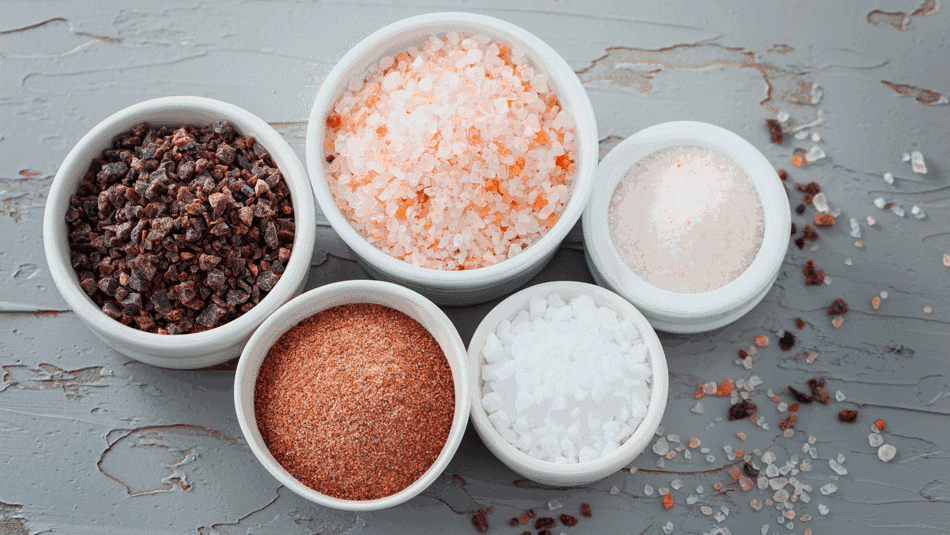
Why Do You Salt Meat Before BBQ?
Salting meat before BBQ is like priming a canvas before painting – it sets the stage for flavor awesomeness. Here’s the quick lowdown:
- Enhances Flavor: Salt is the ultimate flavor enhancer. It gets deep into the meat, bringing out its natural taste. Think of it as turning up the volume on your favorite song.
- Tenderizes: Salt breaks down some of the proteins in meat, making it tenderer. It’s like giving the meat a mini spa treatment before it hits the grill.
- Moisture Magic: Salt helps meat retain moisture during cooking, so it stays juicy and doesn’t dry out. Nobody likes a dry steak, right?
- Crispy Crust: When salted meat hits the grill, it forms a delicious crust (hello, Maillard reaction!). It’s like the golden, crispy edge on a perfectly roasted coffee bean.
What Does Salt Do in Your Meat?
Salt does some pretty neat tricks when it comes to your meat. It’s like the secret barista of the culinary world, carefully crafting the perfect flavors. Here’s what it does:
- Flavor Boost: Salt is like the espresso shot of seasoning. It amplifies the natural flavors of the meat, making everything taste more… meaty. It’s like taking a black coffee and giving it that extra oomph.
- Moisture Control: Think of salt as a moisture manager. It initially draws out some juice through osmosis, then, as the meat rests, these juices get reabsorbed. This process enhances the overall juiciness and flavor of the meat. It’s like steeping coffee grounds to get that rich, full-bodied flavor.
- Tenderizing Effect: Over time, salt breaks down some of the tougher muscle proteins (kind of like a slow, gentle brewing process). This makes the meat more tender, like how a finely tuned espresso machine ensures smooth, perfect coffee.
- Better Browning: When you cook the meat, salt aids in the Maillard reaction (the chemical reaction that gives cooked meat its delicious crust and flavor). It’s like roasting coffee beans to perfection – the right temperature and time make all the difference.
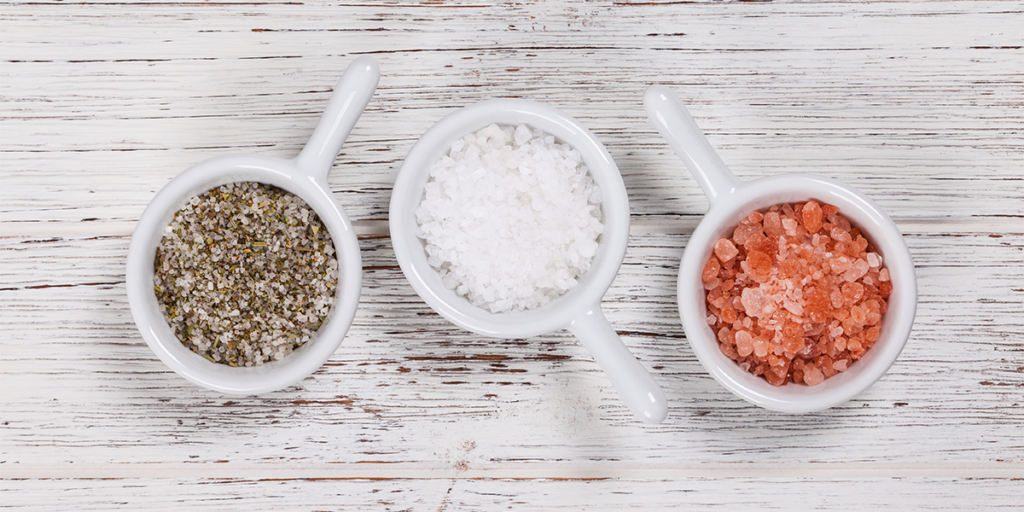
So, adding salt to your meat is like the art of brewing a great cup of coffee. It takes something good and makes it even better, enhancing and highlighting all the right flavors.
What Happens When You Season Meat with Salt Prior to Grilling?
Seasoning meat with salt before grilling is like prepping your coffee beans before brewing – it sets the stage for maximum flavor. Here’s the lowdown on what happens:
- Flavor Enhancement: Salt is a flavor magnifier. When you season meat with it before grilling, it dives deep into the meat, not just sitting on the surface, making the meat itself taste meatier. It’s like grinding coffee beans right before brewing for that fresh, robust flavor.
- Moisture Management: Initially, salt draws out moisture through osmosis, forming a brine on the meat’s surface. This brine is then reabsorbed, carrying the salt (and flavors) with it. The result? Juicier meat. Think of it like letting your coffee steep just long enough to get all the good flavors out.
- Texture Transformation: Salt breaks down muscle proteins, tenderizing the meat. This makes it softer and easier to chew, kind of like how the right brewing time ensures your coffee isn’t too bitter or too weak.
- Improved Browning: When you grill the meat, salt aids in the Maillard reaction, the chemical reaction between amino acids and reducing sugars that gives browned food its distinctive flavor. It’s like roasting coffee – the right temperature transforms the beans into a flavor-packed cup of coffee.
- Consistent Seasoning: By salting before grilling, the seasoning is more evenly distributed. It’s not just a surface thing; the flavor gets all the way through, similar to how evenly ground coffee beans ensure a consistent, well-balanced brew.
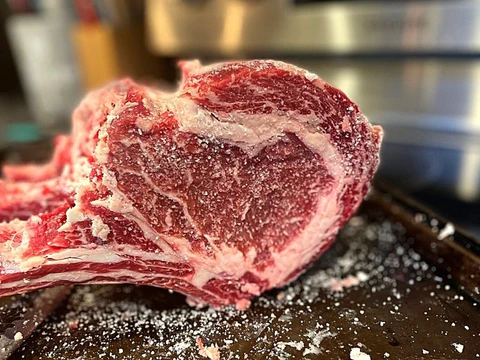
By salting your meat before it hits the grill, you’re basically ensuring it’s dressed to impress, flavor-wise. It’s a simple step, but like grinding those coffee beans, it makes a world of difference!
How Do You Use BBQ Salts?
Using BBQ salts is like using a special blend of coffee – you want to get the proportions just right to elevate the experience. Here’s how to nail it with BBQ salts:
Before Cooking:
Rub the BBQ salt generously onto your meat before cooking. This is like priming your coffee grounds for brewing. The salt needs time to penetrate and season the meat from the inside out. For best results, do this at least an hour before cooking, or even overnight for larger cuts.
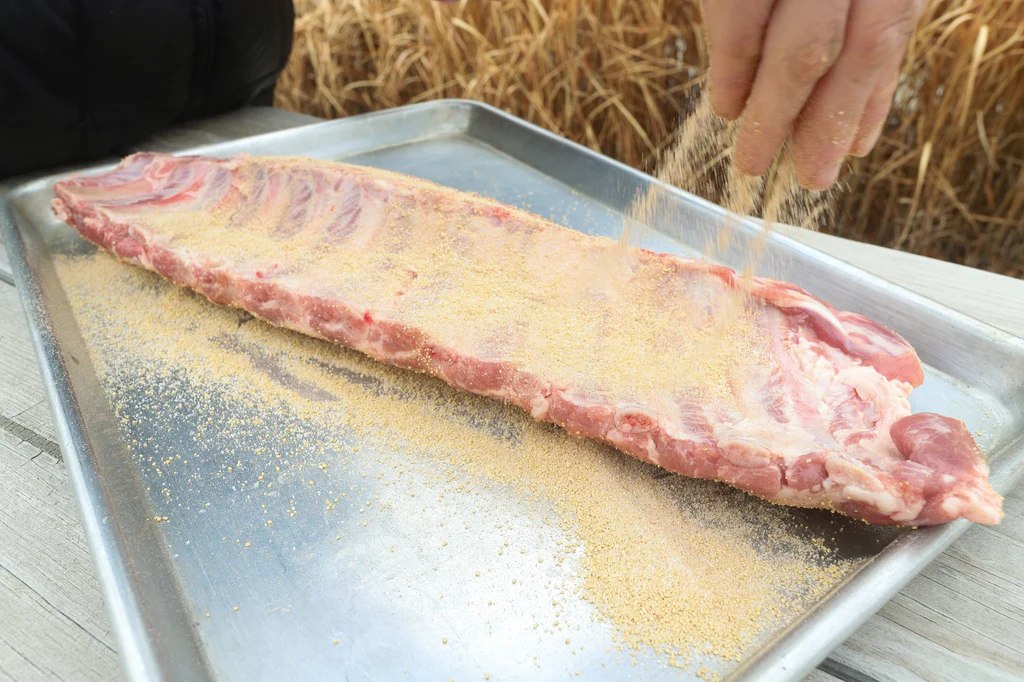
During Cooking:
You can also sprinkle a bit more BBQ salt while cooking, especially if you’re grilling. This is like adjusting the strength of your coffee while it’s brewing. It adds a burst of flavor and helps form that delicious crust on the meat.
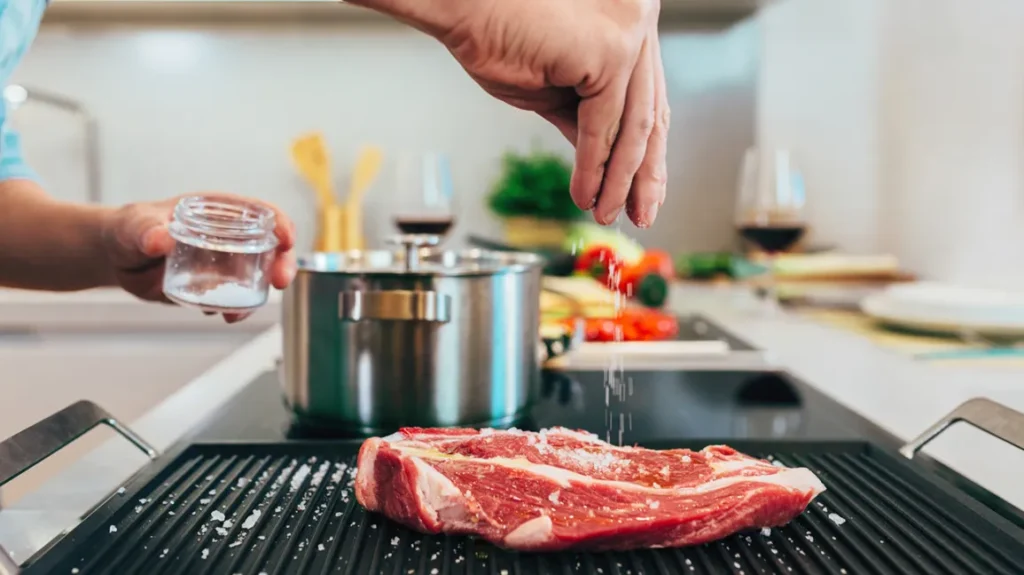
As a Finishing Touch:
After cooking, a light sprinkle of BBQ salt can add a final flavor boost. This is similar to adding a dash of cinnamon or nutmeg to a freshly brewed cup of coffee – it’s all about that finishing touch.
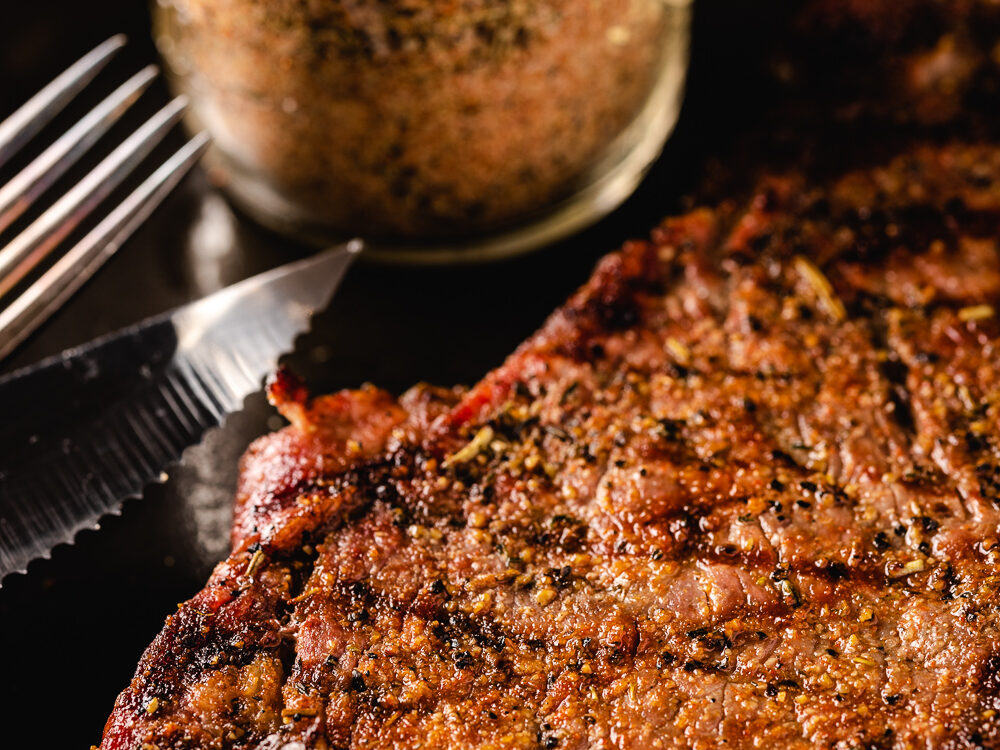
Proportion is Key:
The amount of BBQ salt you use depends on the type and cut of meat. Generally, a good rule of thumb is about 1/2 to 3/4 teaspoon of salt per pound of meat. But remember, BBQ salts often contain other spices and flavors, so you might want to start with less and adjust to taste.
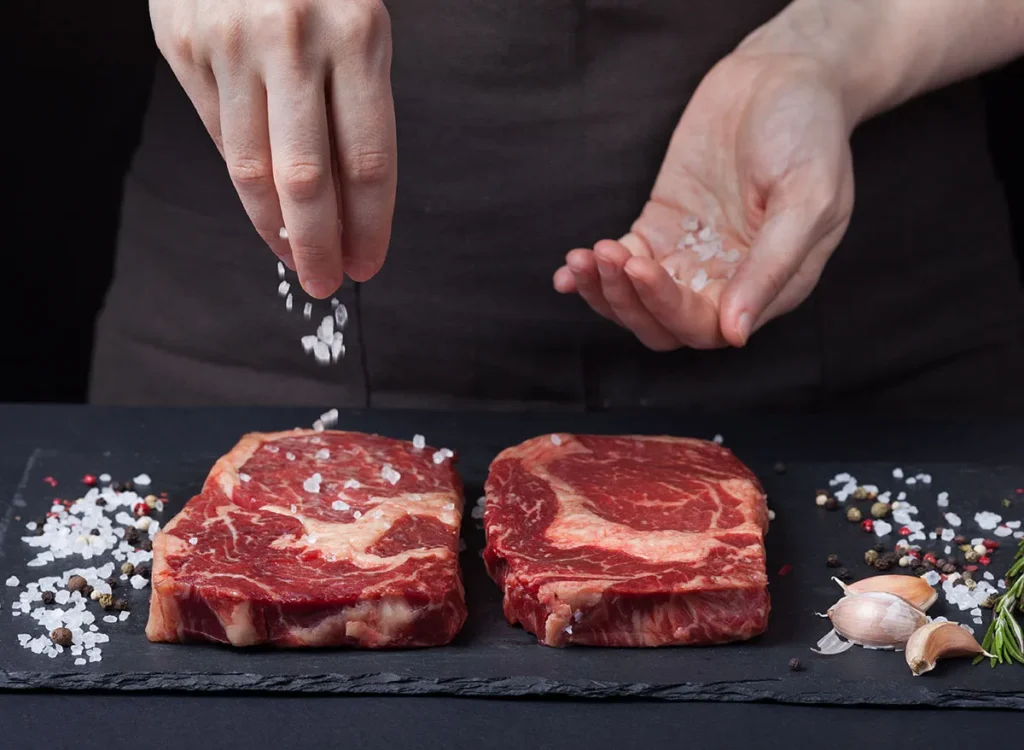
Non-Meat Uses:
And hey, BBQ salts aren’t just for meat! Try them on veggies, or even rimming a glass for a bloody mary. It’s like using coffee in desserts – it’s not just for drinking.
Best Salting and Seasoning Techniques for BBQ
- Timing: Salt your meat at least 1 hour before grilling for small cuts, and up to 24 hours for larger cuts. This gives the salt time to work its magic, just like letting coffee steep to perfection.
- Type of Salt: Use coarse salts like kosher or sea salt for even distribution.
- Go Beyond Salt: Mix salt with other spices to create a BBQ rub.. Popular additions include black pepper, paprika, garlic powder, and brown sugar.
- Rub It In: Apply your salt or rub generously, and really massage it into the meat. This ensures every bite is flavorful.
- Don’t Forget the Rest: Let the meat rest after seasoning and before grilling. This allows the flavors to fully penetrate.
- Finish with a Sprinkle: After cooking, a final light sprinkle of salt or a specialty finishing salt can enhance flavors.
Health Benefits and Nutritional Facts of BBQ Salt
BBQ salt, while a flavor enhancer, doesn’t really come with a list of health benefits since it’s primarily salt – and we all know salt should be used in moderation. However, let’s brew up some insights into its nutritional aspects:
- Sodium Content: The main component of BBQ salt is, well, salt. This means it’s high in sodium. While sodium is essential for body functions like nerve transmission and muscle contraction, too much can lead to health issues like high blood pressure. It’s like coffee – a cup or two can be beneficial, but overdo it, and you might get the jitters.
- Spice Benefits: The additional spices in BBQ salt, like garlic or paprika, can offer some benefits. These spices contain antioxidants and may have anti-inflammatory properties. Think of them as the special syrup in your latte – not just there for flavor, but also offering some extra perks.
- No Significant Nutrients: BBQ salt doesn’t significantly contribute vitamins or minerals, aside from sodium. It’s not a nutritional powerhouse, more like a flavor boost, much like how adding a dash of cinnamon to your coffee doesn’t really change its nutritional value, but enhances the experience.
- Calorie Content: Good news here – BBQ salt has negligible calories. So, while it’s big on flavor, it’s not going to tip the scales.
- Use in Moderation: Just like enjoying coffee responsibly, use BBQ salt in moderation. It’s all about balancing flavor with health.
In summary, BBQ salt is all about the flavor. It’s not a health food, but used wisely, it can be part of a healthy, balanced diet – just like a perfectly brewed cup of coffee fits into your morning routine.
FAQs:
- What’s the best type of meat for BBQ?
- It depends on your taste! Brisket, ribs, pork shoulders, and chicken are all popular. The key is low and slow cooking for tender, flavorful results.
- How long should you marinate meat?
- Anywhere from 30 minutes to 24 hours, depending on the type of meat and the marinade. Tougher cuts benefit from longer marinating.
- Can you reuse a marinade?
- Only if you boil it first to kill any bacteria, but it’s generally safer to make a fresh batch.
- Charcoal or gas grill – which is better?
- It’s like choosing between espresso and drip coffee – both are great! Charcoal offers a smoky flavor, while gas grills offer convenience and control.
- How do you know when the BBQ meat is done?
- The best way is to use a meat thermometer. Safe internal temperatures vary depending on the type of meat.
- Is BBQ food healthy?
- It can be, especially if you choose leaner cuts of meat and keep an eye on portion sizes. Grilling vegetables is also a healthy and tasty option.
- How can I make my BBQ more flavorful?
- Experiment with rubs, marinades, and different types of wood chips for smoking. Each adds its own unique flavor profile.
- What’s the secret to a good BBQ rub?
- Balance! A mix of sweet, salty, spicy, and savory elements. Brown sugar, salt, pepper, paprika, garlic powder, and onion powder is a classic start.
- Can you BBQ in the rain?
- Yes, but it’s tricky. Keep your grill covered, maintain a consistent temperature, and be prepared for longer cooking times.

